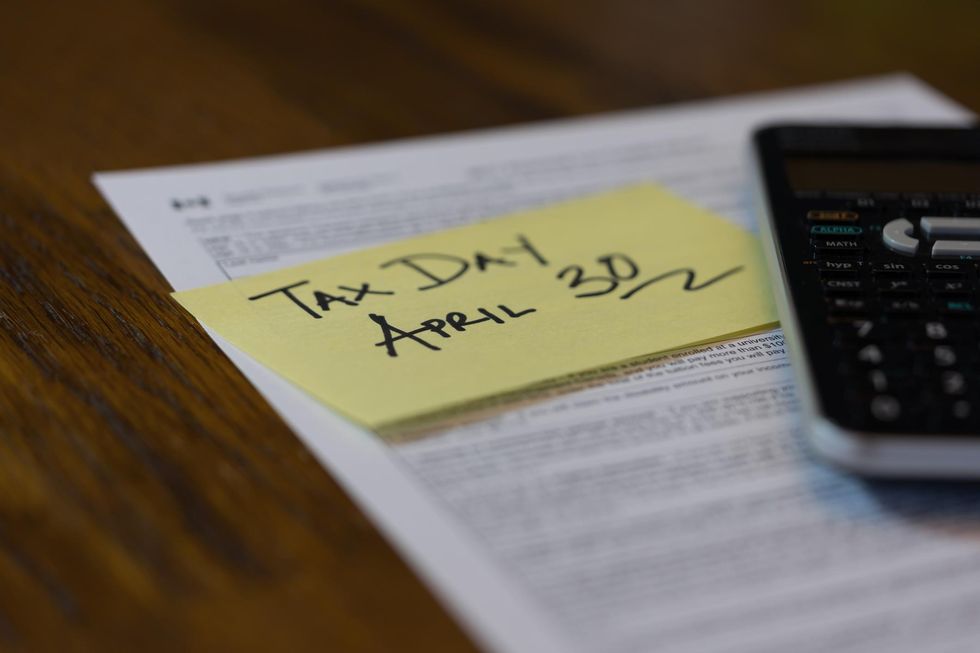7 Tax-Filing Essentials I Wish Someone Had Told Me About When I First Got To Canada
Welcome to Tax 101.
There's a lot to get used to when you move to a new country, like where the good coffee places are, what the cash looks like and — importantly — how taxes work.
I moved to Canada from Australia in 2019, and while there's a lot these two countries have in common, their tax system is not among them.
To their credit, the Canada Revenue Agency (CRA) has plenty of useful information online about tackling taxes as a newcomer to Canada. But even for the most diligent new resident, there is some super-basic information no one would think you need to know.
Now that I'm approaching my fourth tax season in Canada, I can proudly say that I have more-or-less wrapped my head around it. There were, however, some things I wish I'd known right from the get-go.
So that's why I'm here, to let you in on the seven key things I wish I'd known when filing my taxes in Canada for the first time.

What's a "resident for tax purposes" anyway?

dianagrytsku | Adobe Stock
If I had a penny for every time I scratched my head over this question, I'd have to report it as income. If you come to Canada as a temporary worker or a student, it can be hard to know if this applies to you.
Essentially, you might be a resident for tax purposes if you have "residential ties" here. Things like renting an apartment, getting your provincial driver's license and having a Canadian bank account all indicate that you're living in Canada as a resident. If so, you need to do your taxes.
Canada's tax year is the same as a calendar year

Coming from Australia, where the tax year is July 1-June 30 and tax returns are done around September, I did a double-take when I learned the Canadian tax year was January 1-December 31.
It helps keep things simple for sure, but I wish I'd known in advance so that I could've gotten myself organized and not missed out on benefits and credits that I might have been eligible for.
In Canada, tax returns are due on April 30 of the following year. Though, since April 30 is a Sunday in 2023, your return will be considered filed on time if the CRA receives it (or it's postmarked on or before) May 1, 2023.
You could get money back, even if you're not working

Wayhome Studio | Adobe Stock
You may think there's no point doing your taxes if you're not employed, but there are benefits and credits you might be able to get, no matter your income. In short, filing your taxes could make you eligible for potential payouts down the road.
For example, if you've got a low income, you might be eligible for the Canada Housing Benefit to help with living expenses. Though, if you became a resident of Canada in 2022, you need to submit your 2021 statement of income before applying so the CRA can confirm your income and your eligibility.
New tax credits become available all the time, and you don't always have to wait for tax season to get paid. So, my advice is to do your taxes every year, regardless of income. It's a bummer to realize you're missing out just because you didn't get around to filing last year.
The difference between tax credits & deductions

Wayhome Studio | Adobe Stock
For the longest time, I confused "deduction" and "credit" because they both generally work in your favour — but they are technically different.
So, to clarify, a deduction is subtracted from your income, leaving behind your "taxable income." The lower your taxable income, the less income tax you're required to pay. Things like child-care expenses, union dues and RRSP contributions could be used to bring your taxable income down.
A tax credit comes in after you've figured out how much tax you owe, and then it's credited to your tax bill. If you owe tax, it will reduce how much you have to pay.
If you were lined up for a refund, you might get this amount added to it — this is what's meant by a "refundable tax credit."
If the tax credit is not refundable, it could still reduce the tax you owe to zero. In this case, it's called — yup, you guessed it — a "non-refundable tax credit."
It's possible to file online with NETFILE as a newcomer

Daenin | Adobe Stock
I wish I'd known that newcomers can do their taxes online for the first time. I went old school and filed my first return by paper, but if I'd known that I could have used tax software instead, I would have picked this quicker and easier option. And what’s even better — some software are free.
Filing online has plenty of perks too, including immediate confirmation that you've filed your taxes and a shorter processing time. Go double duty and sign up for direct deposit before you file so you can get your refund even faster.
You can sign up for certain benefits & credits as soon as you arrive in Canada

LoloStock | Adobe Stock
When I arrived in Canada, I didn't realize that there were certain tax benefits and credits I could have claimed right off the bat.
For example, the goods and services tax/harmonized sales tax (GST/HST credit) is available to some newcomers as soon as they get to Canada. Not knowing this, I only signed up later when I filed my return, which means I probably missed out on some credits I was eligible for.
Another perk of signing up for the credit is that you can get direct deposit set up through the CRA before you file your first tax return. If you don't set up direct deposit before your first tax return, your refund will come by cheque.
There are tax clinics where you could have your taxes done for free

Mariia Korneeva | Adobe Stock
The CRA's Community Volunteer Income Tax Program (CVITP) is perfect for newcomers to Canada, and I wish I'd known about this resource sooner. In Quebec, it's known as the Income Tax Assistance – Volunteer Program.
If you have a modest income and a simple tax situation (you don't have a business or rental income, for example), you can get your taxes filed with the help of a volunteer at a free tax clinic. The volunteers are available in person or virtually, and you can volunteer too if you like.
Getting settled in a new country is a challenge, but it can also be very rewarding. Once you've filed your first return as a newcomer, there's so much about the Canadian tax system that falls into place.
And don't forget, there are plenty of free resources available through the CRA to help you along the way.
To find out more about filing taxes in Canada, visit the CRA website or follow them on Instagram, Facebook and Twitter.
This content is for general informational purposes only and does not constitute financial, investment, legal, tax or accounting advice.
